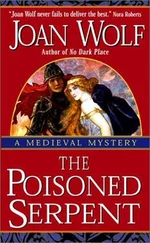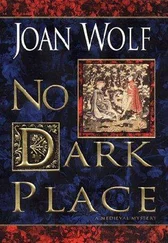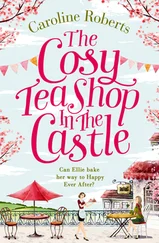At this point, Simon exited from the tower staircase and hurried toward them, a rolled piece of parchment in his hands. The earl gestured for him to give it to Roger.
“My old eyes can’t see to read these days,” he said. “Read it to me, my boy.”
Roger read aloud: “Greetings to the Earl of Wiltshire from his brother, the Earl of Lincoln. I bring you sad news. My daughter Sybilla went home to God on the third of June of this year.”
My God, she’s dead! Shocked, Roger looked up from the letter and over to his grandfather.
The earl glowered. “Hell and damnation,” he said. “This will spoil all our plans.”
Roger shook his head as if to clear it, then looked back down at the paper. “There is more,” he said, and began to read again. “Fortunately, this tragic news will not force us to cancel our plans. My other daughter Eleanor will take Sybilla’s place. The marriage between Lincoln and Wiltshire can go forward as planned.”
Roger looked up once more in bewilderment. “Another daughter? I thought the earl had only one.”
His grandfather raised his thick gray brows. “So did I. I wonder where this Eleanor came from.”
Roger felt a pang of uneasiness. There was something strange here. “Do you think there might be something the matter with her? That they kept her hidden for a reason?”
“I don’t know,” the earl said. “But I’m damned glad they had an extra daughter! This marriage will be the making of our family. I would be loath to give it up.”
Roger wasn’t listening. “I don’t want to marry someone who is not right in the head! Or is deformed!”
The earl said crisply, “I don’t care what is wrong with this girl, you will marry her because it is your duty to your family. All you have to do is get children on her. You can continue to pursue your other interests—like the silversmith’s widow that you see in town. But marry the heiress to all of Lincoln you will.”
“How do you know about Tordis?” Roger asked in surprise. “I never told you.”
“I know everything,” the earl said complacently. “Knowledge is power, my boy. That is another thing for you to remember.
“I will reply to Earl Raoul and tell him that we shall be happy to accept this other daughter,” he continued. “I will also suggest that we get the two of you wed as soon as possible.” The earl shuddered. “God, after all our careful plans, the whole scheme might have been lost because the girl died. How fortunate that they had this other daughter to bring forth.”
Roger was having a hard time sharing his grandfather’s enthusiasm. The thought of wedding a girl who had something wrong with her repulsed him. “Yes,” he said glumly. “Very fortunate.”
“Drink up, my boy, and don’t look so disheartened,” the earl recommended. “I married, like you, to advance the family, and the marriage turned out very well.”
“What about my parents?” Roger asked. “Did my father marry for the sake of the family?”
“Your father never did anything but thwart me in every way he possibly could. We won’t discuss him. You are the son of my heart, Roger. You are the child who will carry our name into the future.” The earl lifted his cup. “God bless you, my boy.”
It was the usual dismissive reply Earl William gave whenever Roger asked about his father. After so many years of being rebuffed, he knew enough not to pursue the subject.
The first thing Lady Alice did to reclaim her daughter was to give her a bath and wash her hair. Nell had never been so embarrassed in her life. In the convent they had worn bath sheets, which went over the head and covered the sides of the tub like a tent, so that they could not see themselves naked. Lady Alice scorned the bath sheet. She had the servants set the big wooden bathtub up in a splash of sunshine from the window, and she herself set to work on her daughter. It was as if she thought she could scour all the years in the convent away from Nell if she scrubbed hard enough. Her hair was washed and rinsed three times before Lady Alice was satisfied.
The castle ladies had done a hasty job of taking up and taking in one of Sybilla’s gowns, and Lady Alice dressed Nell in it once she had come out of the bath. Then her hair was toweled briskly and braided into two long plaits that would fall over her shoulders when they had completely dried.
“Take a look,” Lady Alice said, handing Nell the first mirror she had ever seen. Nell peered in it cautiously, a little afraid of what she was going to find.
A girl with large, wary, dark blue eyes looked back at her. She had delicate eyebrows and a small, straight nose. There was color from the bath in her cheeks and her lips.
I’m pretty, Nell thought, and tried to squash the pleasure she felt at this discovery. Mother Margaret would say that worldly looks were not important and certainly were no measure of the worth of a person.
“You’re a very pretty girl, my dear,” Lady Alida said.
“Yes, you are,” Lady Alice agreed. “You don’t look like Sybilla, you look more like your grandmother—my mother. She was small and delicate, like you. But she ran a great household and raised a family at the same time, and so will you, Nell.”
I’m not Sybilla, even though I am wearing her dress, Nell thought, clenching her teeth. I’m Nell. I was brought up in a convent. I know nothing of how to run a great household. I don’t want to be married. I don’t want to run a great household. I want to go home.
But the convent was closed to her. As miserable as it made her, she was going to have to remain here at Bardney.
Over the next week, Nell attended meals and helped her mother and the ladies sew her new wardrobe. In the evenings she sat in front of the fire and listened to one of the squires play the lute. Outwardly she was docile and obedient to her parents, but inside she was grieving for the loss of her old life, for the loss of Sister Helen. At night she would kneel on the wooden floor of her room to say her prayers and ask the Lord to send her back to St. Cecelia’s. Then, almost as an afterthought, she would pray dutifully, If it is your will that I stay here, Lord, help me to learn to love my mother and my father. Help me to be a good daughter and to do good works in this strange place.
Then she would get into bed, loneliness engulfing her heart, and cry herself to sleep.
Ten days after Nell’s arrival at Bardney, the Earl of Lincoln’s usher approached the high table to tell the earl that his messenger had returned from Wiltshire with a reply.
“Send him to me,” the earl said, returning the piece of meat he had been about to eat back to his trencher. Nell, who was sitting between her mother and her aunt, heard the usher’s announcement but didn’t think much of it. She chewed slowly on her beef and didn’t notice the way her mother had stiffened.
The messenger came into the hall still wearing his spurs and carrying his helmet under one arm. He threaded his way between the trestle tables where the household was dining until he stood in front of Lord Raoul. He bowed his head. “My lord,” he said, “I bring you the reply to your missive. The Earl of Wiltshire bade me give it directly into your hand.”
“Thank you, Waldo,” the earl replied and took the rolled parchment from his messenger’s hand. “Sit you down and have some dinner.”
“Thank you, my lord.”
Nell watched as the messenger found an empty place at one of the tables. He was greeted genially by his fellow diners, and a servant came scurrying with a trencher for him to put his meat upon. Another servant poured him some ale.
Nell looked back at her plate. There was so much meat served in her father’s house! In the convent, meat had been a luxury. Fish had been the food of choice, either caught fresh from the river or salted and dried.
Читать дальше












